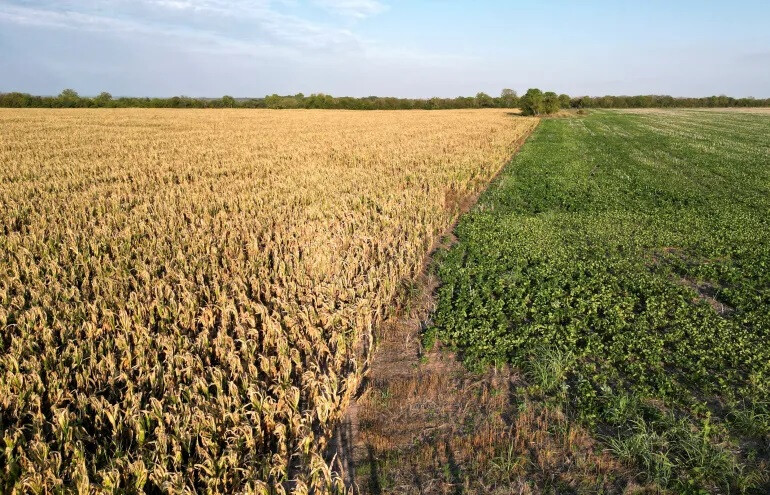
Buenos Aires, Argentina – The Buenos Aires Grains Exchange announced that Argentina's muddy farmlands are set to benefit from dry weather in the coming days. This welcome news comes amidst an urgent situation for the country's soybean crops, which have already been delayed by recent intense storms. Argentina is the world's largest exporter of soybean oil and soy meal, and soybean yields have a significant impact on the national economy.
Late last week, the northern region of Buenos Aires province was battered by fierce winds and heavy rain, causing considerable damage. The grains exchange had previously warned that it might have to lower its soybean harvest estimates due to this heavy rainfall.
Argentina's Grain Production Status and Economic Importance
Argentina is one of the world's top three agricultural exporters, with soybeans, corn, and wheat being its main cultivated crops. Soybeans, in particular, are the core of Argentina's agriculture and a vital pillar of its national economy. Soybeans are primarily processed into soybean oil and soy meal, which is used as animal feed, and then exported globally, accounting for a significant portion of Argentina's foreign currency earnings. Therefore, soybean yields directly impact Argentina's economic growth rate, inflation, and trade balance.
The damage caused by this recent heavy rainfall has raised concerns about reduced yields due to delayed soybean planting and adverse effects on crop growth. If farmlands are submerged, seeds can rot or fail to germinate properly, and existing crops may die due to difficulty in root respiration. Furthermore, as the soil turns muddy, it becomes difficult for agricultural machinery to access the fields, leading to problems in performing farming operations at the appropriate time.
Recurring Adverse Weather and Agricultural Challenges
In recent years, Argentina has faced difficulties in agricultural production due to extreme weather phenomena, alternating between droughts and floods. With the increasing frequency of unpredictable weather events influenced by climate change, farmers experience annual anxiety about crop fluctuations. In particular, climate patterns like La Niña and El Niño significantly impact Argentina's rainfall, directly affecting grain production.
Last year, a record-breaking drought led to a substantial reduction in soybean and corn production, severely impacting the Argentine economy. While the recent heavy rainfall presented another challenge for farmers, the upcoming forecast of dry weather offers some hope.
Future Outlook and Response
The Buenos Aires Grains Exchange anticipates that the continued dry weather over the next few days will dry out the submerged farmlands, which should positively affect soybean crop conditions. However, it is unlikely that the damage already incurred will be fully recovered. Experts emphasize that the Argentine government and agricultural stakeholders must devise long-term strategies for climate change adaptation, focusing on developing disaster-resistant crop varieties and improving infrastructure, such as expanding irrigation facilities. Additionally, it is crucial to strengthen agricultural insurance schemes to minimize farmers' losses and to enhance meteorological information systems to enable farmers to plan their operations with more accurate information.
Argentina's agriculture is not merely about food production; it is directly linked to the nation's economic survival. Therefore, continuous efforts and investments are critically needed for stable agricultural production.
[Copyright (c) Global Economic Times. All Rights Reserved.]



























